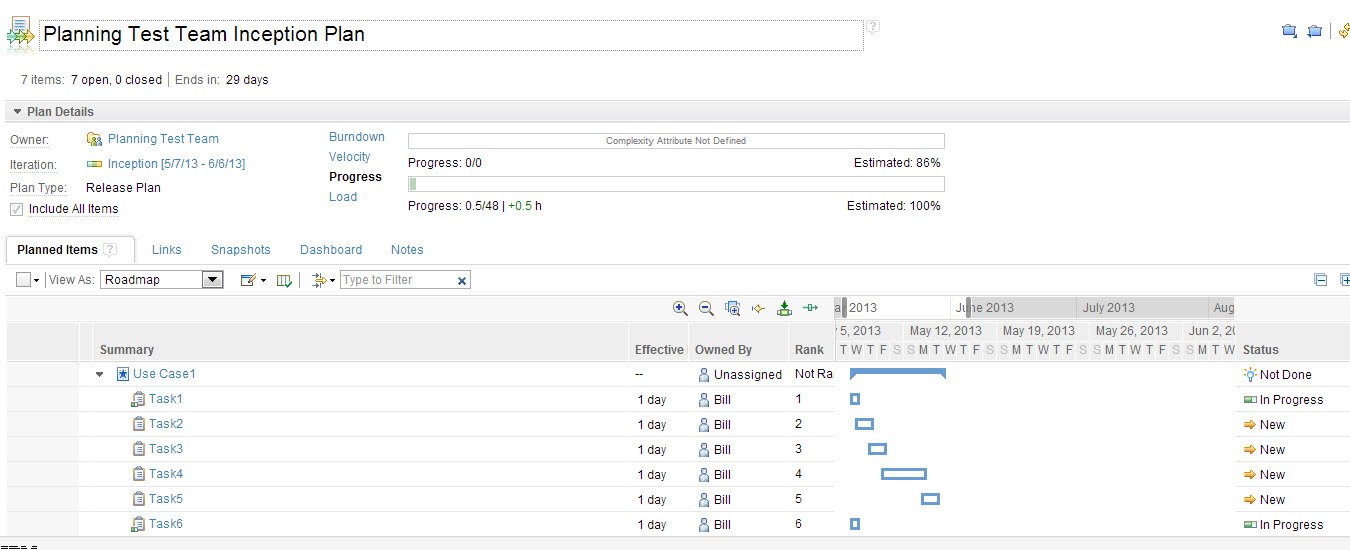Team member with parallel iterations on same timeline has 16 hours work to do in one day.

One answer
the way you set up iterations in your timeline is not supported as far as I can tell.
The temporal iteration structure in a timeline has to be a partitioning where nested iterations can again partition the interval of the parent iteration.
If you build in overlaps and violate the "partitioning" paradigm, the planning component will just do wrong calculations and show effects like you describe above. I would agree, that you should not be allowed to specify timelines with overlapping iterations, you might want to consider creating an enhancement request here: https://jazz.net/jazz/web/projects/Rational%20Team%20Concert#action=com.ibm.team.workitem.viewWelcome
If you want to model concurrence, you have to use separate timelines and separate teams.
As an alternative you can use the same timeline for two teams and have the user allocated to each team. Then you can plan different tasks in different teams and the calculations would reflect the real data.
Comments
Ralph,
Thanks for your answer.
It's a pity RTC does it this way. It makes it difficult to scale the project area for team members working on multiple iterations.
Also not good that the the over-allocation is not flagged within the plan!
Looking at the same scenario using the Formal Process Template, RTC seems able to manage the Tasks for a single user across multiple iterations by scheduling them all correctly one after the other (When using the Work Breakdown and Schedule view).
1 vote
I concur with your complaint, however, I don't know a better way either. How would you calculate irregular iterations? However, I would think an enhancement request for your scenario would be fine. I had these discussion before and you are not alone. There has to be a better way, maybe sing milestones?
However RTC was developed for agile and your scenario is not really.